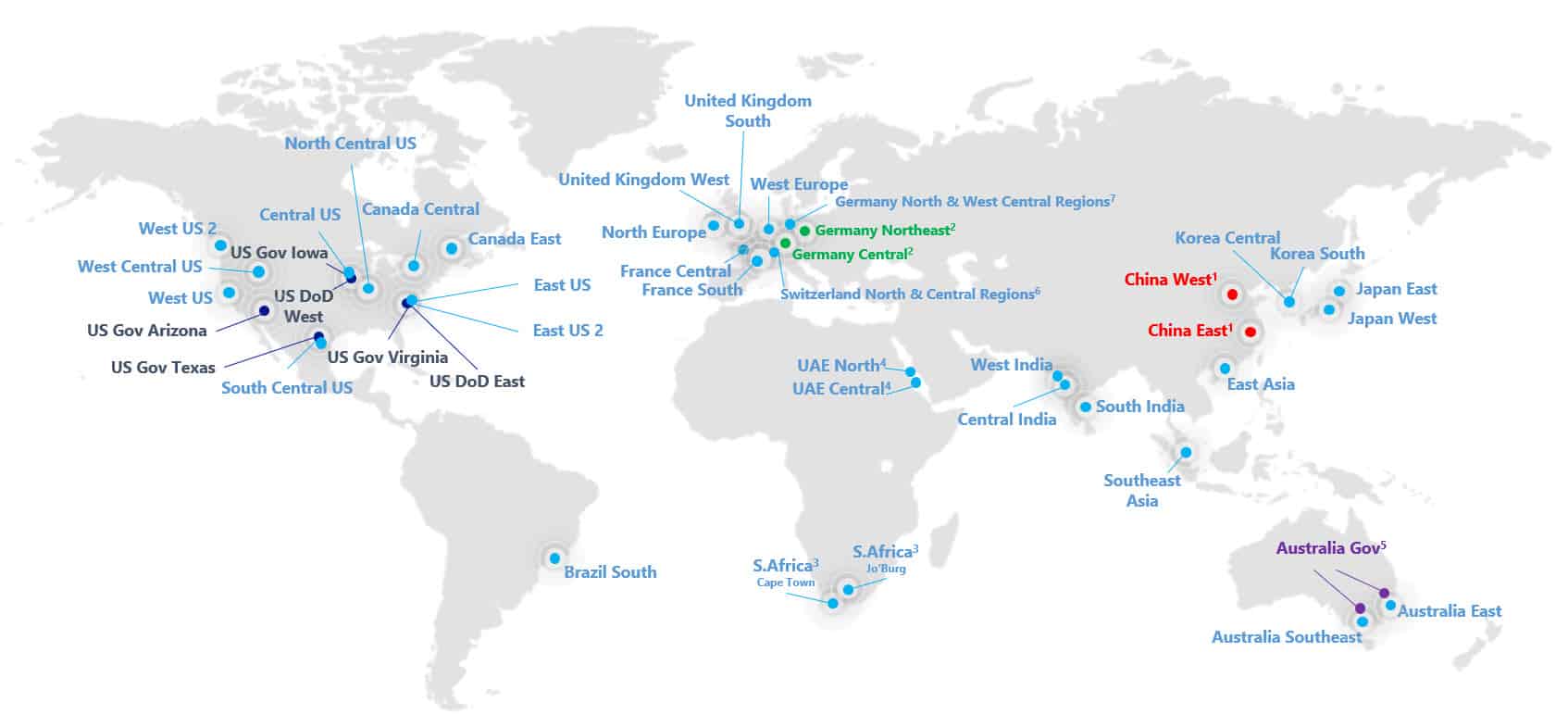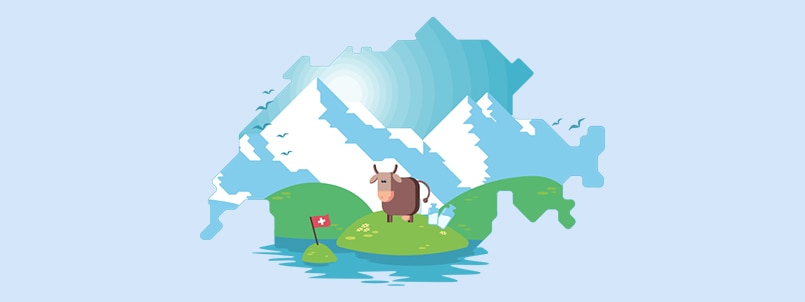Two weeks ago, Microsoft announced the opening of two Azure datacenter in Switzerland later in 2019. However, what does that exactly mean and what are differences between those Azure Geographies and Regions?
Microsoft describes an Azure Geography as a discrete market, typically containing two or more regions, which preserves data residency and compliance boundaries. There can be one or more datacenters in such a region, thus delivering all Azure and Office 365 services. Geographies are fault-tolerant to withstand complete (single) region failure.

An Azure Region is a set of datacenters deployed within a latency-defined perimeter and connected through a dedicated regional low-latency network. As of March 2018, Azure is generally available in 38 regions around the world, with plans announced for 12 additional regions. In Europe we have five (5) geographies, containing multiple regions:
- Europe (Amsterdam, Dublin, Northeast, and Central)
- France (Central, South)
- Germany
- United Kingdom (South, West)
- Switzerland (Geneva, Zurich)
It’s important to understand, Germany is different to the other geographies. There is a physical and logical separation instance of Azure Services as it has been designed to meet the strictest EU data protection under control of German Data Trustee. One of the main differences is that a local service provider runs the Germany Cloud. You can read more about Azure Germany here.
A new Datacenter in Switzerland
It will be interesting to see, how the new datacenters will impact the cloud momentum and also how other cloud providers will react to this announcement. Also, local players are (re-)positioning themselves. Moreover, what about the Swiss market? Why does such a small country get its “own” datacenter(s)? Few thoughts from us on this…
- … there is a strong preference for “Swissness“, mainly for historical reasons, but also because of the myriad of legal frameworks (26 cantons, federal level). As Switzerland is not part of the European Union (EU), the synergies are limited. This is also part of the Swiss culture – embracing and enjoying local products and local markets.
- … there is still a lot of FUD (Fear, Uncertainty, and Doubt) against any US-based providers due to the situation with NSA, homeland, etc.
- … however, the most significant impact is regulations in the finance industry (banking secret) and in the health industry (professional confidentiality).
- …there are rules, regulations, and law in some industries that demand that data cannot leave the country or cannot be accessed from outside the country.
However, Swiss companies are sometimes willing to pay a premium price tag (as it was for Apple… or VMware) to get something special. Also, Switzerland has a strong brand in different markets due to its neutral position and stable politics (link), likely seen as a safe harbor to make business or park money. There is a reason why Switzerland plays a role in almost all James Bond movies…
There’s just one more thing…
There are many dimensions to why and how the cloud is essential to Switzerland, not exclusively the price for certain resources, which Microsoft could potentially bring down, compared to partners and vendors. Keeping what’s precious to you near your heart is another key driver – and the potential of physically driving to the place and getting your data back another. Yes, there’s also the aspect of knowing the people you do business with and shaking their hand. Microsoft will not be in the position of eradicating all partners and hosting companies in Switzerland – not by far.


Is it possible to migrate the whole tenant from Microsoft 365 cloud to Switzerland. If I do that, can we change the language from Dutch to English?
Yes, this is possible for the Swiss Region since December 2019. Have a look here: https://docs.microsoft.com/en-us/office365/enterprise/moving-data-to-new-datacenter-geos
Cheers
Michel
UAE is in the Middle East, not Africa.
You can delete the comment after changing the map image.